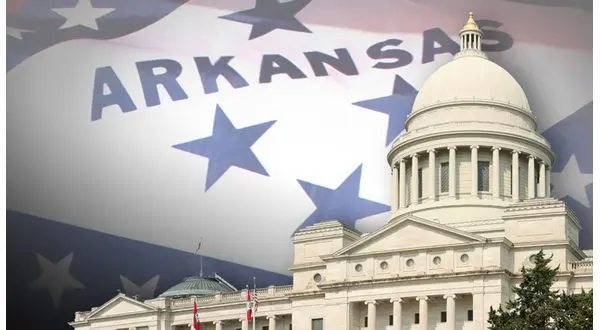
Dozens of Arkansas municipalities will continue to go without certain monthly allotments of state funds because they haven’t yet filed required audits of their water and sewer systems.
After a two-hour debate Friday, Arkansas lawmakers on the Legislative Joint Auditing Committee rejected a proposal to expunge a July vote to withhold “turnback funds” from 43 cities and towns whose 2022 water and sewer audits were outstanding at the time.
Seven legislators voted for the motion while eight voted against it and five voted present. Several members of the 35-member committee were absent.
The committee voted last month to give grace to the 40 cities and towns that still had not submitted their reports for fiscal years 2022 through 2024. Three cities had filed those reports, and two more had done so as of Friday, said Rep. Richard Womack, R-Arkadelphia, House chair of the committee’s Counties and Municipalities subcommittee.
The committee’s September vote asked Treasurer John Thurston to release the funds and require each municipality to provide the delinquent report to Arkansas Legislative Audit or an engagement letter with a certified public accountant promising the report will be submitted by Dec. 31.
However, that vote had no legal authority, according to an opinion issued Monday by Attorney General Tim Griffin’s office. Thurston’s office requested the opinion after the committee’s vote in September. The opinion stated that only expunging the initial vote to withhold funds would allow Thurston to release them.
Act 453 of 2023 states that lawmakers can ask the state treasurer to withhold the funds if a municipality misses the 18-month deadline and that the funds can only be restored if the municipality submits all its reports through the most recent fiscal year.
If those audits are not submitted, the committee may-but is not required to-direct the state treasurer to withhold turnback funds until the reports are submitted. However, once the treasurer is directed to withhold the funds, it is required to do so, Assistant Attorney General William Olson wrote in Monday’s opinion.
Rep. Jack Ladyman, R-Jonesboro, proposed the failed motion to expunge the July vote. He insisted that the opinion “is not law until it goes to court and is proven in court” and that lawmakers do not have to take action that aligns with it even though he agreed with it.
Sen. Kim Hammer, R-Benton, proposed that the committee release the turnback funds to municipalities “that are actively showing efforts” to submit their outstanding audit reports but to continue withholding funds from those that “have produced no evidence of actively complying with the law.”
Thirteen municipalities have shown no effort to submit their reports, said the committee’s House chair, Rep. Robin Lundstrum, R-Elm Springs.
“I’m struggling between grace, mercy and rewarding effort, but not rewarding those who are blatantly disregarding the law, because I think that is an injustice to the cities that have gotten the message and are making an effort,” Hammer said.
The committee rejected Hammer’s motion, which also would have required representatives of the noncompliant municipalities to appear before the committee at its next meeting. The motion failed by a similar margin as Ladyman’s.
Most of the municipalities flagged for delinquent audit reports in July have populations of fewer than 1,000, Ladyman noted.
for two months,” Ladyman said. “That may be keeping them from complying.”
Local governments receive two types of turnback funds from the state. General revenue turnback funds support basic local services such as emergency response. Turnback funds from state highway revenue go to municipalities and are required to be spent on maintaining roads that are continuations of state highways or former state highways.
Lundstrum reiterated her previous opposition to releasing the withheld funds from noncompliant entities.
“If they have a water and sewer department and you don’t pay your water bill, what happens?” she said. “You get your water cut off. At some point, they’ve got to be able to do an audit.”
To view this story, or for more news updates from Arkansas Advocate, click here
WebReadyTM Powered by WireReady® NSI










